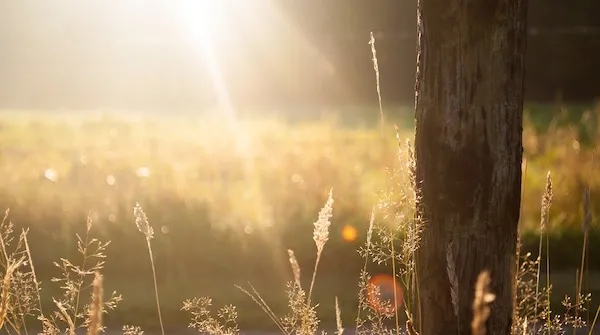Staying Strong During Times of Stress and Uncertainty

Editor's Note: This is part of Nancy's Resilience series. Please see other posts in this series.
As readers know, my husband Brett had a near 7-year battle with brain cancer. His illness and death absorbed most of his 30s and mine. It wiped out a decade of what should have been a happy, vibrant time for a young couple in the prime of life. Because Brett was sick for most of our marriage, it took years for me to remember him in better days pre-cancer. Long after his death, I pictured him at hospital wards, not Bruce Springsteen concerts or watching the boats near our childhood homes.
Overnight, or so it seems, COVID-19 has drawn a similar dividing line. It’s almost eerie to think about life before and life now during a pandemic. We’re still living in the midst of crisis, which means that we don’t have the benefit of an end point. If only scientists and the medical community could say with certainty that by “X date,” this virus will be wiped out. Wishful thinking, I know. But if there’s one thing I’ve learned from being a longtime cancer caregiver, it’s to rely on cautious optimism.
There’s reason to be more optimistic when faced with a cancer diagnosis today. Mortality rates declined by 29% from 1991 to 2017 according to the American Cancer Society. This is because of strides made in treating the 4 most deadly common cancers: lung, colorectal, breast, and prostate. I’m comforted by this progress even as I hope and pray that all cancers will one day be cured. Call me a proponent of progress and potential, but I have to believe that scientists and clinicians will develop the right vaccines and treatment to prevent people dying of COVID-19. They are working around the clock to do so, often at enormous personal risk, as the world has witnessed.
Anyone who has had a brush with cancer—as a patient, survivor, caregiver, or loved one—feels especially tender, and maybe even helpless, in the face of this crisis. Here we are, though, living in quarantine, trying our best to stay strong in body and mind.
Sometimes the smallest of mental shifts can change our entire attitude. Here’s a prime example. My daughter, Rebecca, is a high school senior and crushed about missing this year’s rites of passage. She sobbed for an hour (maybe longer) the day she learned that students would not be returning to school for the rest of the year. But then, without any provocation on my part, she threw herself into making a video musical montage using favorite images from her senior year. Focusing on positive memories helped her to feel better and was a great, uplifting gift to share with her classmates.
My old friend Andi Hughes did something similar during a recent holiday, which she and her family would have celebrated together pre-Covid-19. Andi wrote on Facebook that she was feeling melancholy all day until she got the idea to honor her family’s tradition by recreating it. She, too, selected photos of family gatherings held over the years. The backdrop was her mother’s elegant dining table. Andi laughed. Cried. Celebrated.
Both Andi and Rebecca showed the kind of optimism that is characteristic of resilience. Neither resisted their sadness; they surrendered to it. In so doing, they found new ways to honor their circumstances, and this gave them strength.
How can you make a hard situation better? How can you lift yourself and loved ones during times of uncertainty and stress?
Learn how CSC is offering support here:
What Cancer Patients, Survivors, and Caregivers Need to Know about the Coronavirus